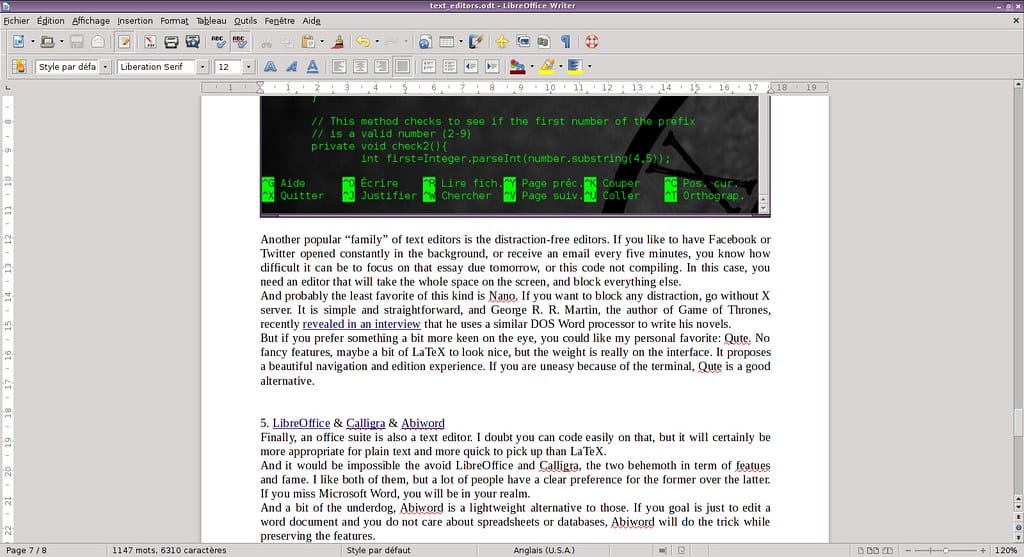LibreOffice 25.8 Drops Windows 7 and 8.x Support: The End of an Era for Legacy Users
The popular open-source office suite joins the growing exodus from Microsoft's aging operating systems, forcing millions of users to face a critical decision about their computing future.
LibreOffice, the world's most widely-used free office suite, has announced that its upcoming version 25.8 will no longer support Windows 7 and Windows 8.x operating systems. This decision affects an estimated 100 million users worldwide who still rely on these legacy Windows versions, marking another significant milestone in the tech industry's ongoing push away from older platforms.
The Writing on the Wall
The Document Foundation, LibreOffice's governing body, cited security concerns and development efficiency as primary drivers behind this decision. "Maintaining compatibility with operating systems that Microsoft itself no longer supports creates unnecessary security vulnerabilities and diverts precious development resources," explained Italo Vignoli, a board member of The Document Foundation.
This move aligns LibreOffice with a broader industry trend. Major software vendors have systematically abandoned Windows 7 and 8.x support over the past two years, including Google Chrome, Mozilla Firefox, and even Microsoft's own Office 365 suite. Windows 7, despite its popularity, lost official Microsoft support in January 2020, while Windows 8.1 support ended in January 2023.
The Numbers Tell a Story
According to StatCounter's latest desktop operating system statistics, Windows 7 still commands approximately 3.4% of the global desktop market share as of late 2024, while Windows 8.x accounts for less than 1%. While these percentages seem small, they represent tens of millions of computers worldwide – many in businesses, educational institutions, and government agencies that have been slow to upgrade.
The impact is particularly significant in developing markets, where hardware refresh cycles are longer and legacy systems remain in active use. Countries like India, Brazil, and several African nations show Windows 7 usage rates exceeding 10% in some regions.
Security Implications Drive the Decision
The primary catalyst for this change stems from mounting security concerns. Legacy operating systems lack modern security frameworks that newer software depends on, creating potential vulnerabilities. "When we build security features for current operating systems, we often can't backport them effectively to Windows 7 or 8," noted a LibreOffice developer who requested anonymity.
Recent cybersecurity incidents have disproportionately affected organizations running outdated operating systems. The 2017 WannaCry ransomware attack, which heavily targeted Windows 7 systems, serves as a stark reminder of the risks associated with legacy platform support.
What This Means for Users
Existing LibreOffice installations on Windows 7 and 8.x systems will continue to function, but users won't receive the latest features, security updates, or bug fixes available in version 25.8 and beyond. The last compatible version, LibreOffice 25.2, will receive security patches until early 2026, providing a transition window for affected users.
Organizations and individuals still running these legacy systems face three primary options:
Upgrade the operating system: Move to Windows 10 or 11, though this may require hardware upgrades for older machines.
Switch to alternative platforms: Consider Linux distributions that can run LibreOffice on older hardware, extending the useful life of legacy systems.
Accept the limitations: Continue using the final compatible LibreOffice version with understanding that security and feature updates will cease.
The Broader Industry Context
LibreOffice's decision reflects a broader shift in software development philosophy. As new technologies like AI integration, advanced cloud connectivity, and enhanced security protocols become standard, maintaining backward compatibility becomes increasingly complex and resource-intensive.
Microsoft itself has been pushing users toward newer operating systems through various incentives and warnings about security risks. The company's recent announcement of extended security updates for Windows 10 (which reaches end-of-life in October 2025) comes with significant per-device fees, further encouraging migration to Windows 11.
Looking Forward
This transition marks the end of an era for one of computing's most enduring relationships. Windows 7, launched in 2009, enjoyed unprecedented popularity and user loyalty, while LibreOffice has served as a crucial free alternative to expensive commercial office suites for over a decade.
For organizations still dependent on legacy systems, the clock is ticking. The convergence of ending support from major software providers creates a compelling case for systematic IT infrastructure modernization. While the transition costs may seem daunting, the security risks and functional limitations of maintaining outdated systems increasingly outweigh the benefits of standing still.
The LibreOffice community's decision ultimately prioritizes the security and advancement needs of its majority user base, even as it acknowledges the challenges this creates for legacy system users worldwide.

